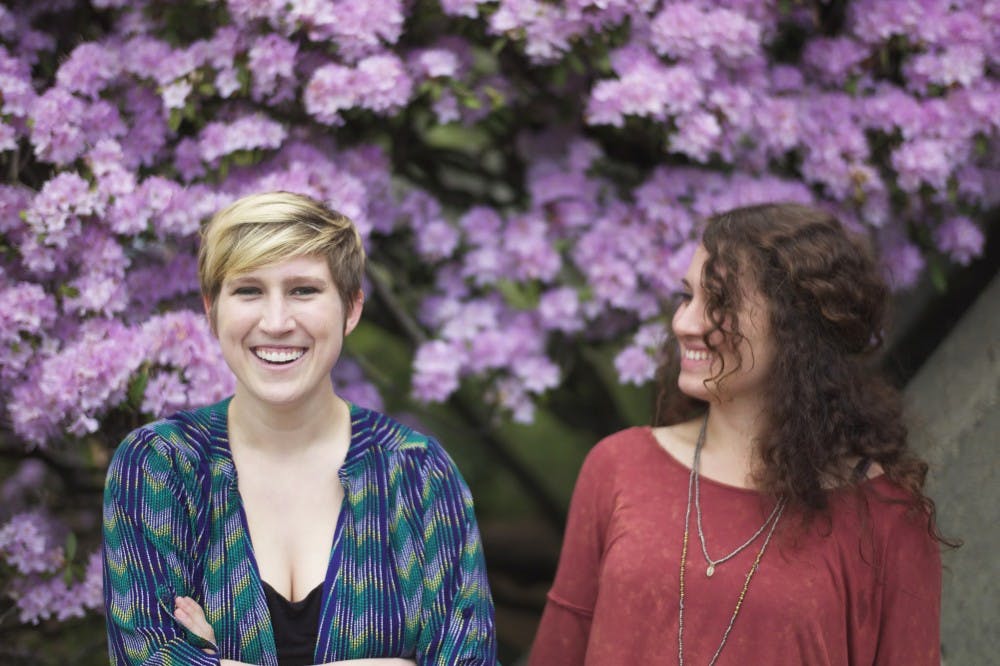Karen Garcia |
This September, six UP students will join the ranks of 53 Nobel Prize and 78 Pulitzer Prize winners as Fulbright Scholars.
Over the course of one academic year, the students will live, study and teach English in a foreign country through grants awarded to them by the Fulbright US Student Program.
UP is internationally recognized for being a top producer of Fulbright recipients and is currently ranked third in the nation among master’s colleges and universities.
Seniors Megan Fitzgerald, Megan Lester, Rebecca Parks, Erin Petersen, Mikayla Posey and Michelle Wilcox were offered English Teaching Assistantships (ETAs). Parks’ position is in Turkey, Fitzgerald’s is in Mexico, and the other four are in Germany.
On top of working in an elementary or secondary school classroom for 12 hours a week, ETAs study the language and culture of their host country.
Wilcox, a German and history major, started her journey toward the Fulbright program two years ago when as a sophomore studying abroad in Salzburg, Austria.
“I originally decided to study abroad because I love travel, and I was very shy, so I wanted to do something outside of my comfort zone,” Wilcox said. “What I ended up experiencing was transformative.”
She came back to the U.S. enamored with German language and history and vowed to return to Germany after graduation. To Wilcox, applying for the Fulbright seemed like the natural next step on the path she started at UP, so she dove into the process nearly a year ago.
John Orr, director of the Office of Undergraduate Scholarly Engagement, said the most valuable thing the Fulbright program offers to those who apply is clarity, even if the student doesn’t ultimately receive the grant.
“There are advantages beyond simply getting to live somewhere else,” Orr said. “You get to do some soul searching and thinking about who you are or where you want to go, and how you’re going to get there in order to have a competitive application.”
Wilcox wants to use the language and culture skills she gains after her year in Germany to become a German teacher. Instead of waiting until the fall to move, she plans to head to Berlin in June and work during the summer.
“Once you start to travel and you get past the homesickness and the initial hard phases, it becomes addictive,” Wilcox said.
Lester, an English and German major, studied abroad in Salzburg with Wilcox, Posey and Petersen her sophomore year. She had the unique experience of applying for and being awarded the grant along with three of her closest friends and said that her anxiety surrounding the move to Germany is lessened by the knowledge that she’ll be living in the same country as them.
As a tutor in the University’s Writing Center, Lester has enjoyed the experience of working one-on-one with students on their work. She plans to use her time abroad to explore the classroom setting and dynamic and determine whether or not she wants to teach in the future.
“I’ve fallen in love with the German language, and I obviously have a love for the English language, so getting to do both is idea,” Lester said. “It all just makes sense.”
Orr said a majority of the Fulbright awards offered to UP students have been presented to those interested in ETAs or research opportunities in Germany, leading to the student misconception that only German-speaking students can be presented with Fulbright awards.
In addition to Germany, students have gone to India, Spain, Ireland, the United Kingdom and Cambodia. For the first time this year, Turkey and Mexico are included in the mix.
“The bottom line is that Fulbright looks for people who are ambassadorial,” Orr said. “The grant was designed to help put a good face on the United States, and recipients are expected to be good representatives and make inroads with the culture that they’re assigned to.”
Orr said that he hopes students of varying interests will continue to branch out and see all the different experiences grants like the Fulbright can provide.
“For some people, Fulbright provides opportunities they didn’t know they could have, and opens doors they didn’t know existed,” Orr said. “For others it’s a great adventure before going to graduate or professional school. Either way, there are benefits.”
Karen Garcia is a reporter for The Beacon. She can be reached at garciaka17@up.edu.








